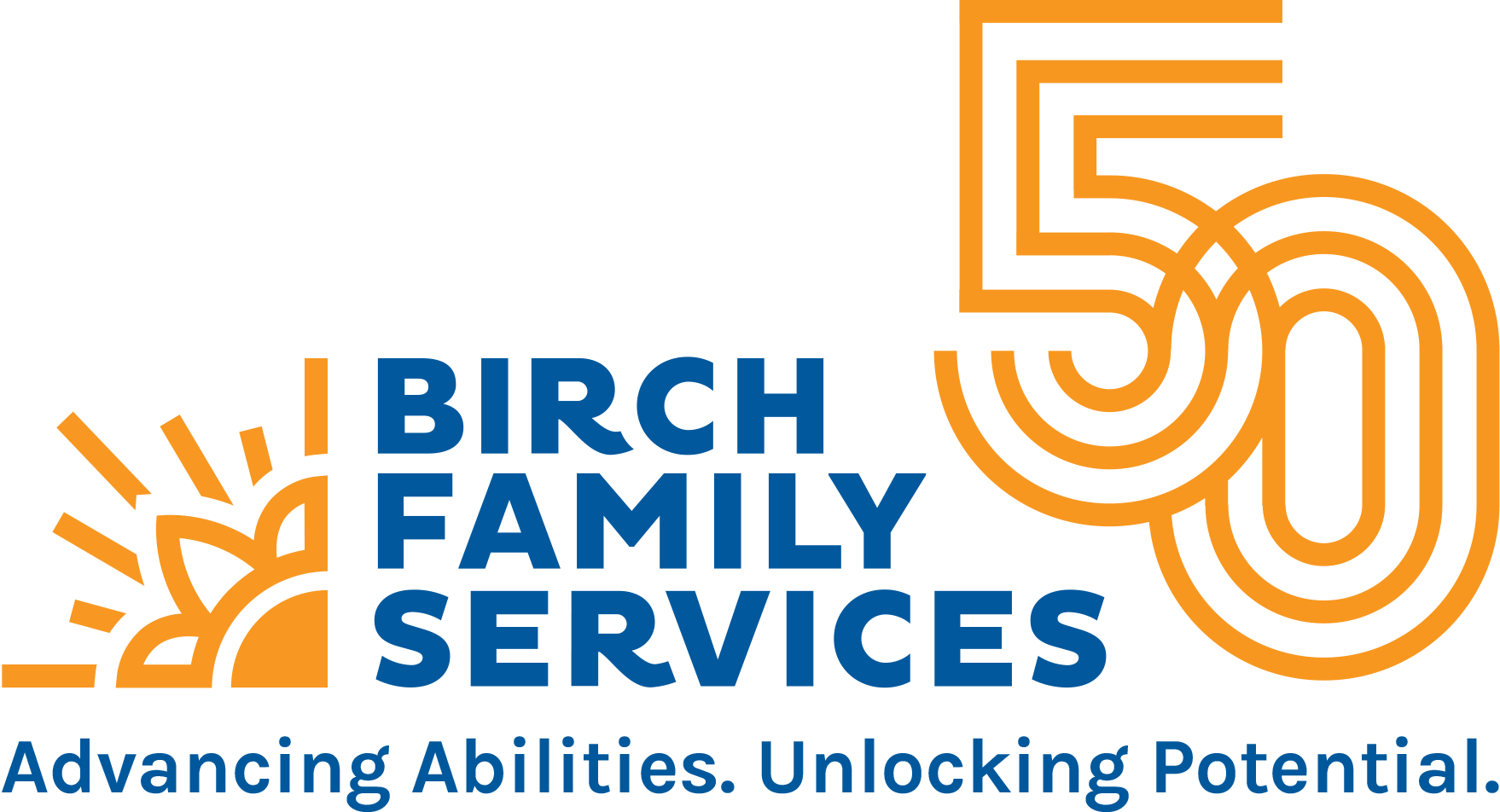Corporate Advisory Network: Focus on Workplace Diversity and Inclusion
On April 16, guest speakers, Eric J. Felsberg, Esq. and Craig S. Roberts, Esq., of Jackson Lewis P.C., presented on Ensuring Successful Diversity and Inclusion Practices in the Workplace, with a focus on people with disabilities.

Craig S. Robert and Eric J. Fellsberg, Principals of the Long Island, New York, office of Jackson Lewis P.C.
On April 16, Birch Family Services convened its Corporate Advisory Network (CAN) Breakfast at the new Hudson Yards offices of corporate partner Cooley LLP.
Matt Sturiale, CEO, reported that since the launch of CAN, we’ve grown from 14 to 20 engaged corporate partners committed to Diversity and Inclusion initiatives in the workplace for individuals with autism and developmental disabilities. Our corporate partners are engaged at various levels from securing “buy-in” at their companies to considering volunteer or paid internships or creating job opportunities. Kari-Ann Wanat, Assistant Director of our New Frontier program reported that we’ve successfully placed 10 individuals in part-time or full-time work with 6 different companies this year.
At this session, our guest speakers, Eric J. Felsberg, Esq. and Craig S. Roberts, Esq., of Jackson Lewis P.C., presented on Ensuring Successful Diversity and Inclusion Practices in the Workplace, with a focus on people with disabilities.
According to Felsberg, while recent studies have revealed the valuable impact of diversity on business — better decision making, increased revenue, increased employee performance — an estimated 80% of working-age individuals with a disability remain unemployed. This high percentage number parallels the number of individuals on the autism spectrum believed to be unemployed. However, this disheartening statistic can be turned around if companies are willing to commit to the foundational principles of diversity and inclusion, as well as comply in good faith with the Americans with Disabilities Act (ADA) regulations related to “reasonable accommodation.”
Under Title I of ADA, a reasonable accommodation is a modification or adjustment to a job, the work environment, or the way things are usually done during the hiring process. These modifications enable an individual with a disability to have an equal opportunity not only to get a job, but successfully perform their job tasks to the same extent as people without disabilities. ADA requires reasonable accommodations as they relate to three aspects of employment, including ensuring equal opportunity in the application process, enabling a qualified individual with a disability to perform the essential functions of a job, and making it possible for an employee with a disability to enjoy equal benefits and privileges of employment.
Felsberg and Roberts offered a few tips for fostering an organization-wide D&I culture, including working with state or local vocational rehabilitation agencies, such as Inclusion@Work, the Employer Assistance and Resource Network on Disability Inclusion (EARN), the Workforce Recruitment Program (WRP), the Job Accommodation Network, to establish outreach programs to attract workers with disabilities. They also recommended creating employee resource groups for networking and sharing concerns and establishing disability inclusion programs to insure that disabled employees are included in all aspects of employment. While this last point seems fairly obvious, according to Felsberg, commitment to diversity and inclusion starts at the top, and any D&I program that seeks to reasonably accommodate employees with disabilities company-wide needs to be championed at the C-suite level. Without executive-level buy-in, efforts to recruit and retain workers with disabilities as well as to enjoy the benefits that disabled employees can bring to their work just won’t be successful.
Underscoring the importance of this top-down commitment, Jackson Lewis just appointed its first-ever Director of Diversity & Inclusion, Jana Simon, who will be responsible for the strategic direction of its diversity and inclusion initiatives, ensuring that inclusiveness is reflected in everything the firm and its attorneys do, including internal and external policies, work, practices, and communications.
The subsequent Q&A focused on some strategies and resources that could help corporations stand out in this arena including accessibility of website and employment application process; identifying executive champions; accessing data from such organizations as the Kessler Foundation and National Organization of Disability.
In closing, Matt Sturiale reported that Birch currently has 35 individuals seeking some type of internship or paid employment in a variety of areas. We are asking our corporate partners to consider assisting us at their firm or other connections. The next meeting is scheduled for July 16.
Committed to the principles of diversity and inclusion in the workplace for individuals with autism and developmental disabilities, Birch’s Corporate Advisory Network serves as an advisory body and strategic partner committed to sharing best practices, expertise, and opportunities that will help facilitate employment and internship opportunities. The network, which meets three to four times a year, also provides professional development, training, and mentorship opportunities for individuals participating in Birch’s New Frontier program.
